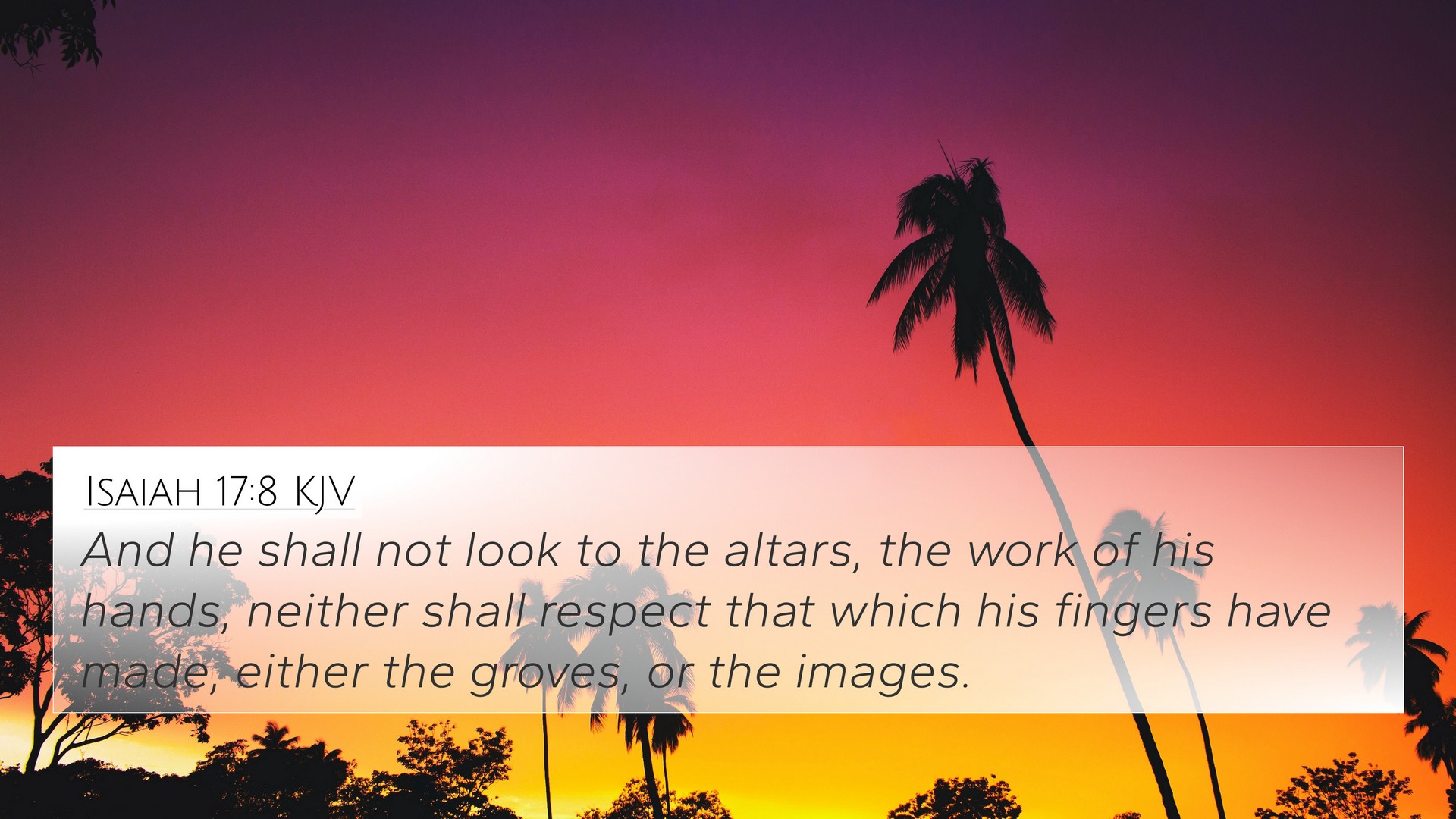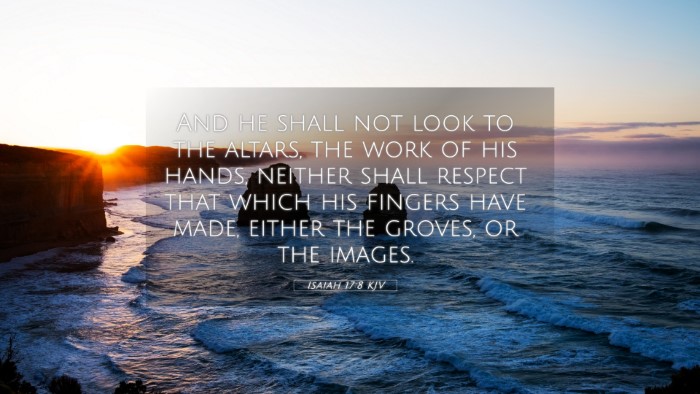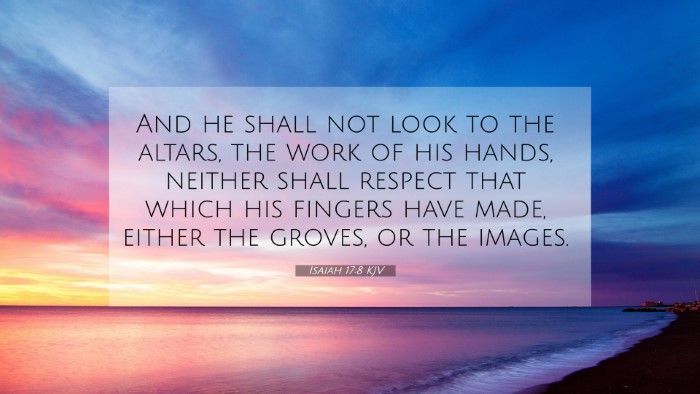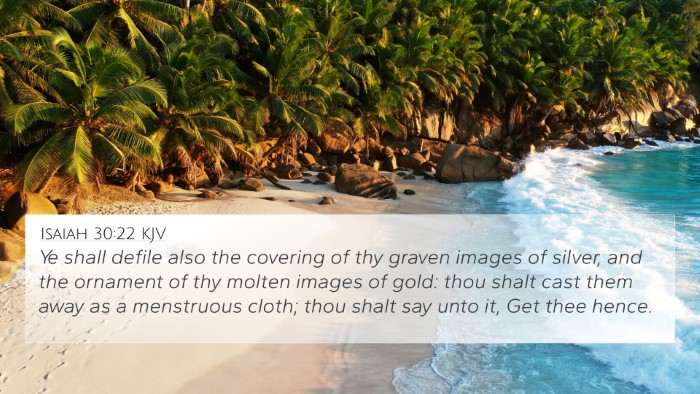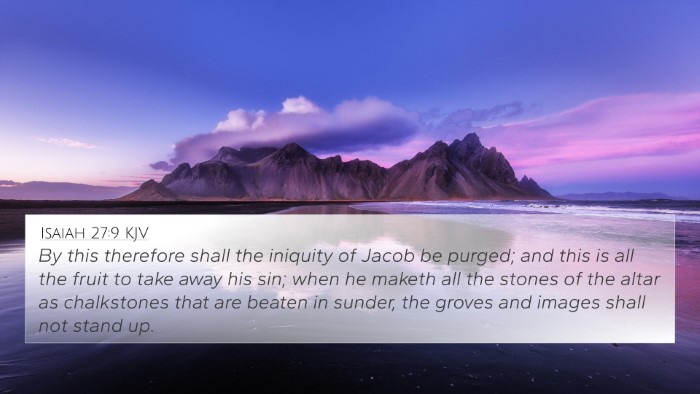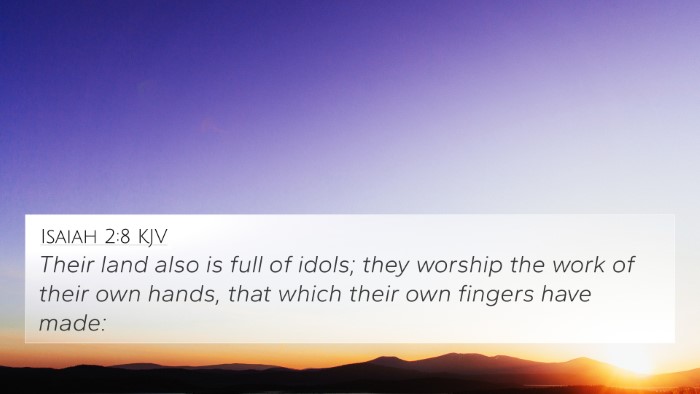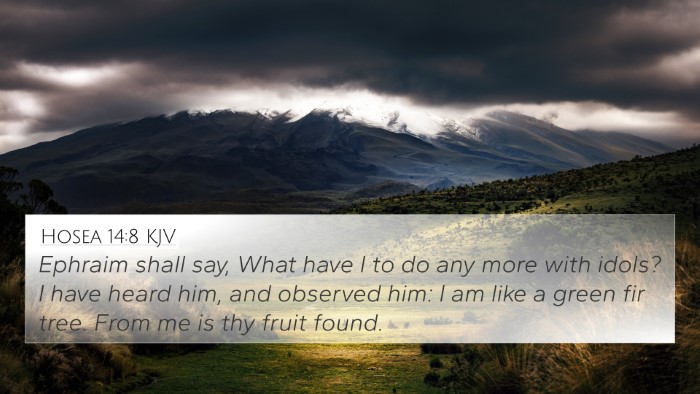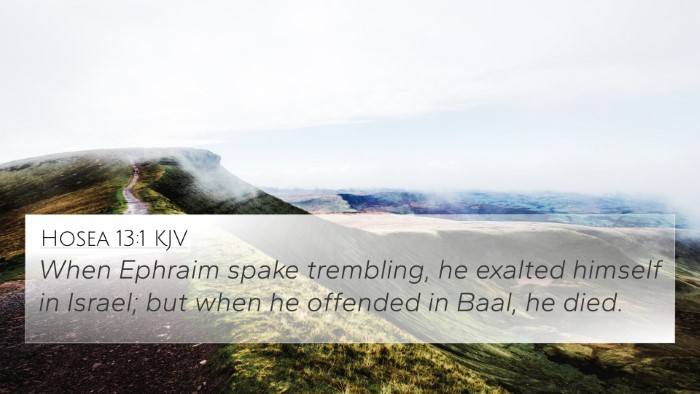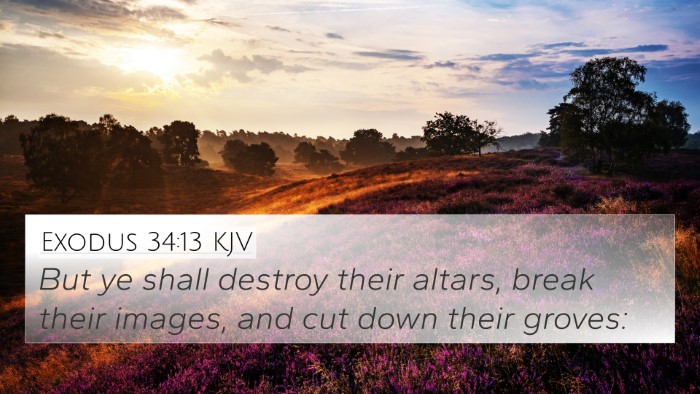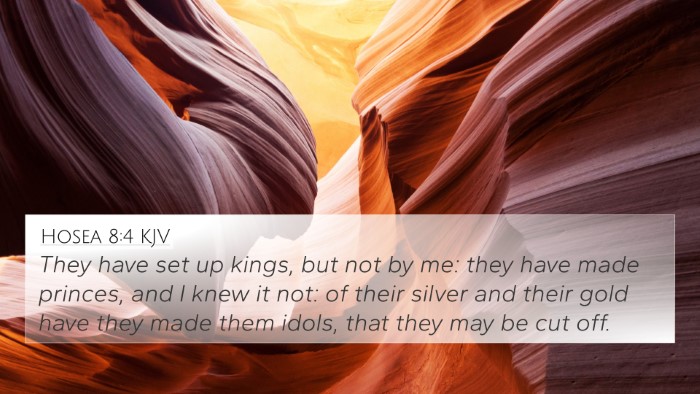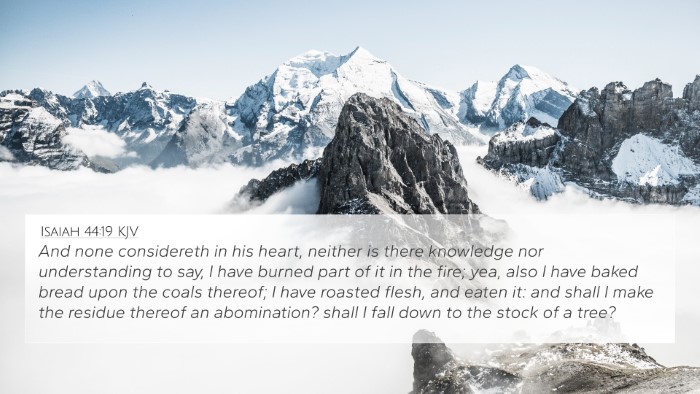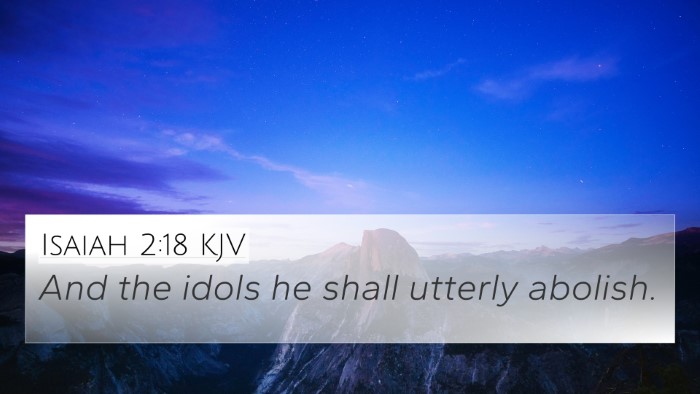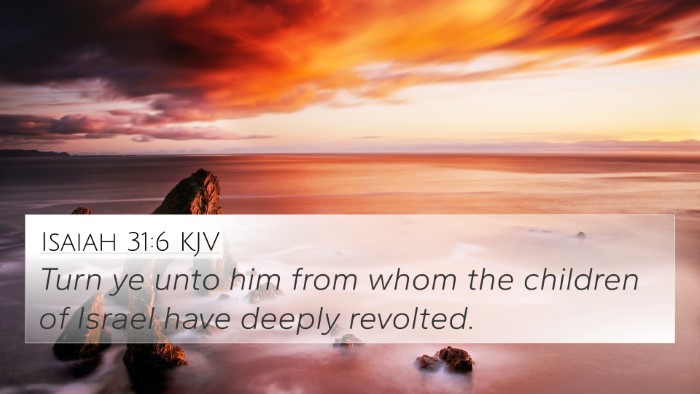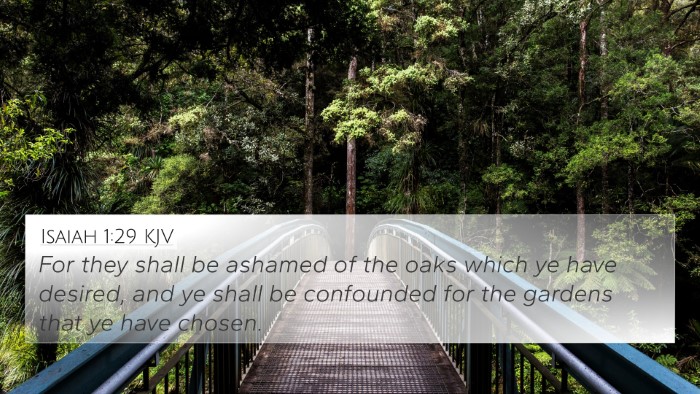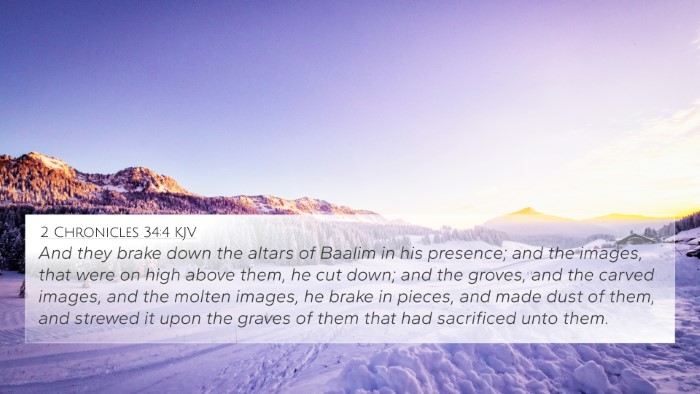Understanding Isaiah 17:8
Isaiah 17:8 states: "And he shall not look to the altars, the work of his hands, neither shall respect that which his fingers have made, either the groves or the images."
This verse speaks to the futility of idolatry and the ultimate rejection of false gods. Below is an exploration of its meaning and context, synthesizing insights from reputable public domain commentaries.
Contextual Background
The chapter primarily deals with the prophecy against Damascus and the surrounding nations, emphasizing God's sovereignty over all. The destruction prophesied serves as a warning against reliance on idolatrous practices.
Commentary Insights
Matthew Henry provides a crucial insight noting that the verse illustrates the spiritual state of people who turn away from God and instead worship created things. This signifies a heart that has forsaken its true source of strength and guidance.
Albert Barnes adds that the reference to "altars" and "images" represents the common practice of idolatry in the ancient Near East. He stresses that true worship can only be directed towards the Creator, as anything else will eventually lead to disappointment and destruction.
Adam Clarke offers a profound observation that the imagery of "groves" and "images" encapsulated the cultural practices of idol worship prevalent in Israel at the time. He highlights the danger of these practices leading individuals away from authentic faith and reliance on God.
Thematic Connections
In analyzing Isaiah 17:8, we find thematic connections with other biblical texts that discuss idolatry:
- Exodus 20:4-5: "Thou shalt not make unto thee any graven image..." - This commandment directly forbids idol worship and reinforces the core message of Isaiah 17:8.
- Jeremiah 10:14: "Every man is brutish in his knowledge; every founder is confounded by the graven image: for his molten image is falsehood..." - A strong warning against the foolishness of idolatry.
- 1 John 5:21: "Little children, keep yourselves from idols." - This New Testament principle echoes the message of Isaiah regarding the dangers of false worship.
- Psalm 115:4-8: "Their idols are silver and gold, the work of men's hands..." - A comparison of the worthlessness of idols to the living God.
- Isaiah 44:9-20: A detailed rebuke of idol-making and worship that underscores the illogic of crafting gods from materials.
- Acts 17:29: "Forasmuch then as we are the offspring of God, we ought not to think that the Godhead is like unto gold or silver..." - The understanding of God's nature contrasts sharply with idol practices.
- Romans 1:21-23: It speaks of the consequences of not recognizing God and turning to images, demonstrating a profound connection to the message of Isaiah.
Cross-Referencing Biblical Texts
Isaiah 17:8 exemplifies the importance of cross-referencing Biblical texts to understand deeper connections. These passages allow for:
- Identifying connections between the Old and New Testament.
- Studying how themes of idolatry are consistently addressed throughout scripture.
Tools for Bible Cross-Referencing
Utilizing tools such as a Bible concordance or a cross-reference Bible study guide can enhance understanding:
- Cross-reference systems provide a framework for discovering related scriptures.
- Guides can help in locating themes and messages that resonate across different texts.
Conclusion
Isaiah 17:8 serves as a potent reminder of the dangers inherent in idolatry. The scripture calls for a deep, unyielding commitment to God, steering clear of created entities. Using cross-references can enrich one’s understanding and highlight the interconnectedness of biblical themes. A close examination of these connections reinforces the timeless relevance of God's word and warns against worshiping the works of our own hands.
For those seeking a more profound grasp of scripture, engaging with these cross-references and commentaries can illuminate the rich tapestry of God's message throughout the Bible. This inter-Biblical dialogue opens pathways to understanding and strengthens faith, providing clarity on how we are to worship and serve the living God.
